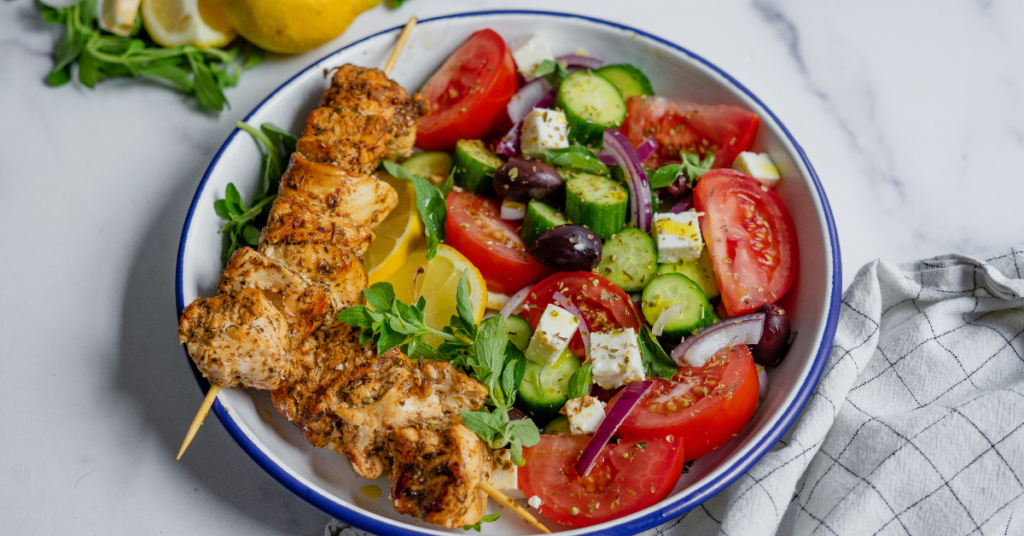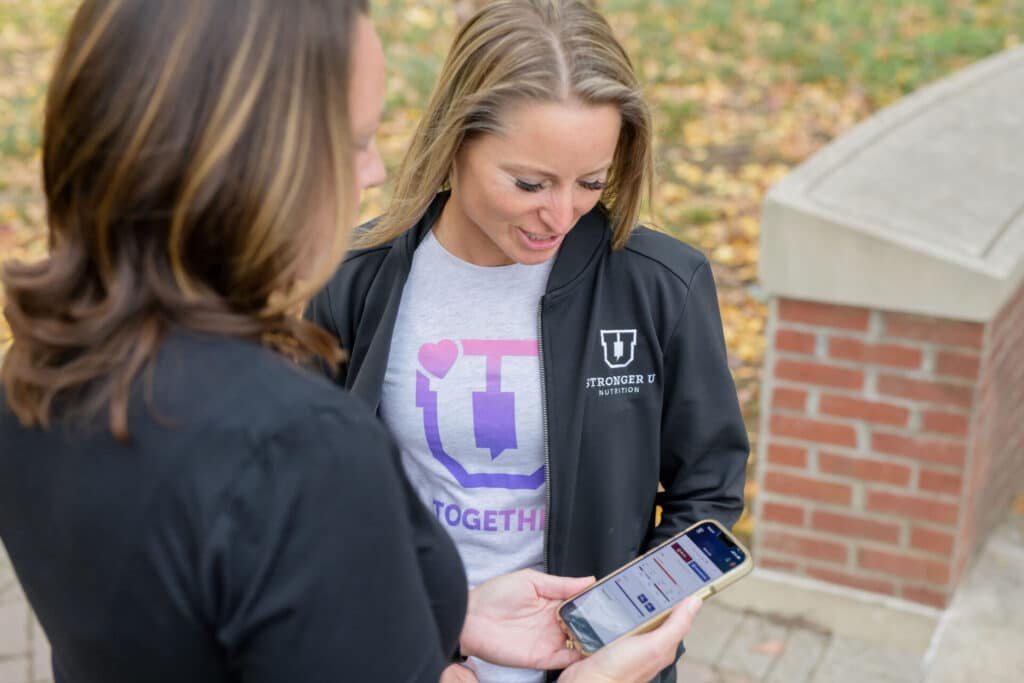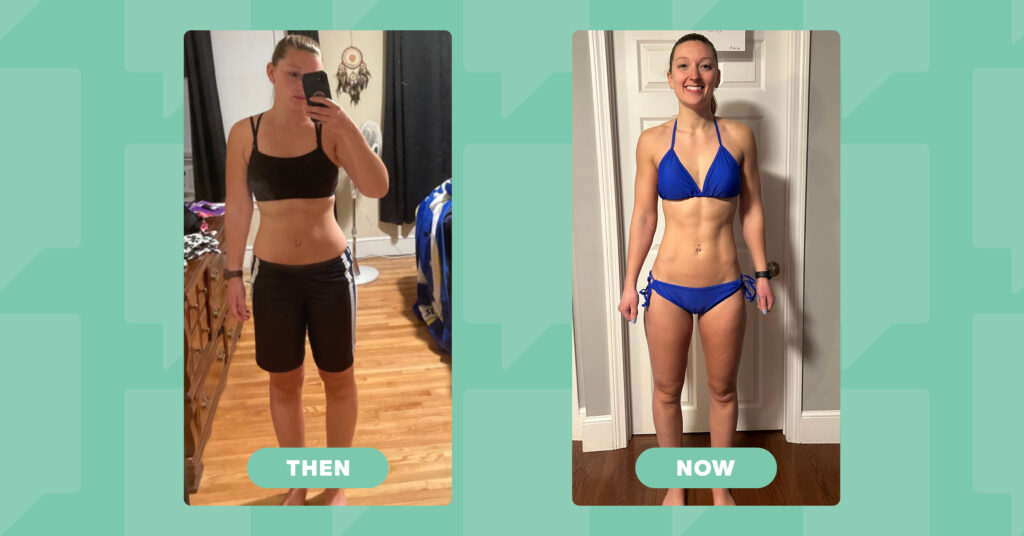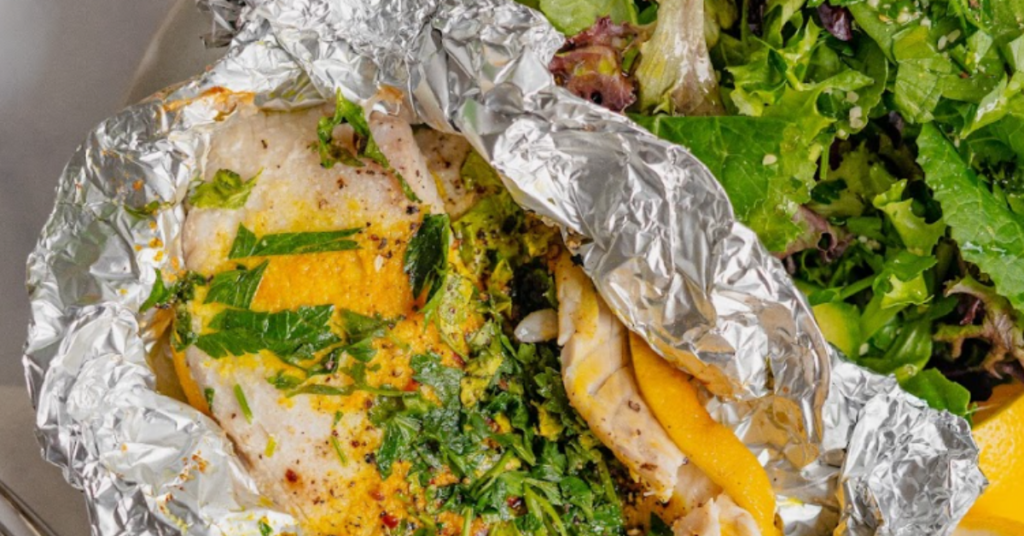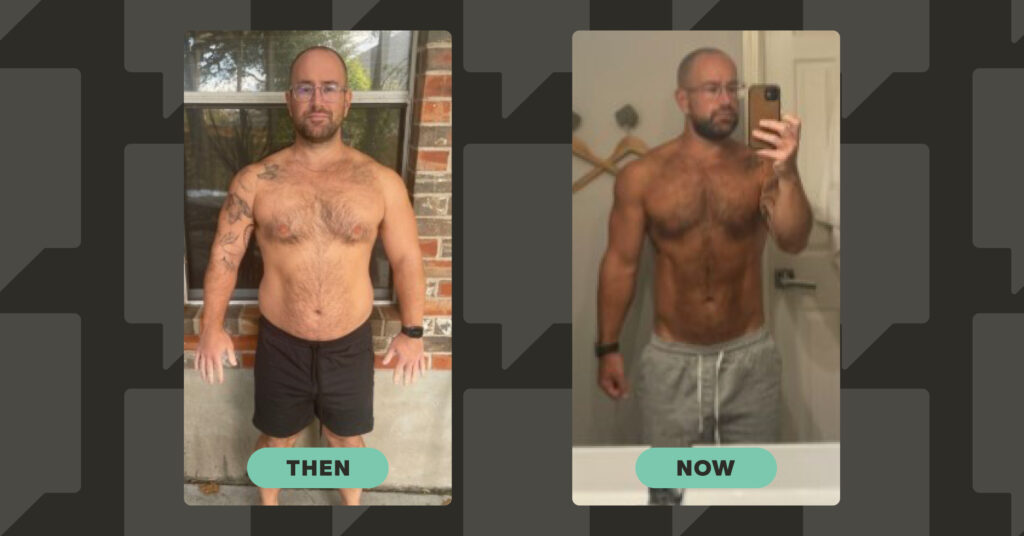I remember the first time I had to confront the fact that, despite all of my best efforts, I was actually getting older. It was a few years after college and a few friends of mine wanted to get a pick-up basketball game together. I’d played in high school (just ask Coach Derek Stanley about the time I dunked on him back then) and I’d played all throughout college, either in pick-up games or in intramurals, but I hadn’t played much basketball at all in the last three years or so. But to me, that didn’t really matter. I was a personal trainer working 8+ hours a day and I worked out almost every day. I was in shape and figured that playing some basketball for the first time in a while wasn’t going to be a big deal.
Until it was.
The games themselves went fine. I even remember being impressed with how well I was getting around the court. There were a few moments where I remember thinking to myself “I guess this whole working out thing pays off.”
But it wasn’t the game itself that was the big deal. It wasn’t the game that reminded me that I was actually getting a little bit older. It was the next day.
That next day I experienced pain and soreness the likes of which I’d never even known were possible. Being sore from playing in football games didn’t come close. Being sore from doing dumb things like 20+ rep deadlift challenges? Not even in the same ballpark.
My knees felt like they were full of gravel and my ankles felt like they were made of glass. I couldn’t walk up or down stairs without feeling like my calves were going to seize up into one gigantic knot. Over the next few days, I spent a lot of time reflecting on an uncomfortable realization that this innocent little pick-up basketball game had brought about: we all get older.
In that process of getting older, we tend to find some incredible things. We find the wisdom that only years of mistakes, learning from those mistakes, and making more mistakes can bring. We find patience. We find understanding. But in getting older we also tend to find a convenient excuse for quite a few things: our age.
There is almost nowhere this is truer than when it comes to talking about weight loss. I can’t even tell you how many times I’ve had this conversation with clients, family members, friends, or the old guy at the gym that refuses to put his towel on while we’re talking. When it comes to age and weight loss, after a certain point, it’s awfully hard to separate the two. To most of us, they become intimately linked in a very specific way: the older we get, the harder it is to lose weight.
But is that actually true? Does age really make a massive difference when it comes to weight loss? Well, it might be. But it’s definitely not true for all the reasons you think it is.
Let’s start with the basics: most people, when talking about age making weight loss a near impossibility, talk about it from the standpoint that our metabolism slows down so much as we age that, at a certain point, it’s virtually impossible. Your metabolism becomes so slow that in order to lose weight you’d need to eat nothing but a handful of spinach and some low-fat cottage cheese every day just to get the scale moving down.
Like most things in life, it’s nowhere near that simple.
We’ve talked at length about metabolisms and whether or not slow metabolisms are a thing before, and for anyone interested in learning more about the nuances of human metabolism, this is helpful reading. Especially when it comes to age. Because our metabolic rate does decrease with age, but not nearly to the degree that most of us imagine.
Starting at around 20 years old, basal metabolic rate tends to decline by about 1-2% per decade. Meaning that someone whose basal metabolic rate is 2,000 calories at 20 years old will now burn around 1,960-1,980 calories per day at 30 years old.
Hardly a major drop, right?
That rate of decline continues until about age 40 in men and age 50 in women. At that point, the decline tends to accelerate, but even because it accelerates doesn’t mean that it’s accelerating to the point where we now have to starve ourselves in order to lose weight. Nor does it mean that the decline is inherently bad.
See, the slowing of human metabolism as we age is a totally normal and acceptable thing. At a certain point, you’re no longer walking around with a “growing” body, you’re walking around with an “aging” body. Human bodies are smart and incredibly adaptive. As that change happens, metabolic rate naturally declines. But it’s still the job of your body to maintain vital functions like keeping you alive, make sure you’ve got the energy to go about your day, and especially ensure that you’ve got the energy to exercise. Those are all requirements of the metabolism, and your body is well aware that it doesn’t want to slow that metabolism down too much, or else all of those things start to be impacted.
However, just because there’s a decline taking place doesn’t mean that decline is so meaningful that it’s now solely responsible for our inability to lose weight. In reality, when we’re talking about age, metabolism, and its impact on weight loss, age and metabolism become convenient boogeymen that keep us from having to face a slightly more uncomfortable truth:
Weight loss gets harder with age thanks to a number of factors.
The real boogyman here isn’t just age and it’s not a metabolism that grinds to a halt. The real boogeyman is unhealthy lifestyle habits that become ingrained as we get older, declining physical activity, and decreasing levels of muscle mass.
Muscle is a metabolically active tissue that not only helps you stay strong, but it also burns more calories at rest than the same amount of fat tissue would. As we age, our muscle mass levels start to naturally decline. It’s hard to get an accurate idea of how much muscle mass the average person loses each year, but the most figures tend to show that inactive individuals tend to lose about 3-5% of their muscle mass with each passing decade after 30.
Declining rates of muscle mass are going to lead to us burning fewer calories on a daily basis, which is another way of saying our metabolism adapts and downregulates, or slows down a little bit. But even then, declining rates of muscle mass aren’t the only culprit here. As we get older our physical activity levels decrease. Which ultimately means that we’re burning fewer calories every day just moving our body.
We firmly believe that exercise and activity shouldn’t be used as major weight loss aids, and we’re not going to say that you can fight back against age by constantly moving and never stopping like some proverbial hamster wheel. But we do know that all the non-intentional activity on a daily basis, or NEAT (or non-exercise activity thermogenesis), makes up anywhere from 15-30% our daily energy expenditure.
All of this leads to one of the more unsettling math equations I’ve ever done, which is saying a lot because I was terrible at math in school.
Declining muscle mass + naturally declining metabolic rate + declining levels of physical activity = weight gain and more difficult weight loss.
Even then, even with that very uncool math equation, that doesn’t touch on the most important point of all: the longer we act a certain way the harder it is to change the way we act.
For the vast majority of us, the reason that we struggle to lose weight or make a meaningful lifestyle change has nothing directly to do with our declining metabolism or muscle mass. It has everything to do with the fact that we’re fighting against the inertia of the previous years.
If you’re someone that, from 22-45, liked to go out every single weekend, get 5 hours of sleep each night, eat mostly fast food, and neglect physical activity then changing those behaviors isn’t an easy task. There are decades of momentum that you’ve got to try and work against. The person you were for all of those years got you to where you’re at, for all the good and the bad.
For all of us, changing who we are is one of the most fundamentally difficult things we can attempt. If it were easy, there wouldn’t be an entire self-help industry built on finding ways to help people hack change. This becomes more true with each trip around the sun we take. We get stuck more and more in our old habits. We keep doing the same things over and over again. We might think about the change we want to make, but we also think about the effort that’s required and we weigh that effort against our current dissatisfaction with where we’re at. And, ultimately, until our dissatisfaction outweighs the effort we think we’ll need to make, change just doesn’t make sense.
So how can we fight back against age and make weight loss possible?
It’s probably safe to say that we’ve been hunting for the key to immortality since people first started to realize that our time on this Earth was limited. Ponce De Leon and his Fountain of Youth is just one of the thousands of examples of people trying to find ways to turn back the clock. Unfortunately, I’m not here to tell you that I’ve found the Fountain of Youth, and if I had, you better believe that secret is staying with me. But I am here to tell you a few ways that we can slow the clock down, at least when it comes to how aging impacts our ability to lose weight.
1. Eat a high protein diet.
Remember us talking about the importance of muscle mass earlier? Protein not only helps support vital functions, immunity, etc. but it also helps us stay young by helping build and retain muscle mass. Eating an adequate amount of protein is one of the easiest ways to help keep your metabolism humming along by keeping muscle mass intact. You don’t need to overdo it though, as more protein, past a certain point, isn’t going to make a big difference. Shoot for anywhere from .7g – 1g of your body weight.
2. Exercise regularly.
Directly related to retaining muscle mass: exercise regularly. Resistance training is going to be the gold standard here, as that tends to influence building and retaining muscle mass over most other forms of exercise. But at the same time, if resistance training is something you hate, don’t skip exercise altogether. Instead, find something that you love and stick with that consistently. Whether it’s dancing, biking, hiking, swimming, Pilates, or any other form of dedicated physical activity. The perfect exercise regimen is the one you can stick to.
3. Move your body throughout the day.
As we get older we move less. That’s a fact of life. It’s also a fact of life that we can try to combat by being intentional about moving our bodies more regularly, which is not only good for us from a musculoskeletal perspective but is also good for us from a metabolic health perspective. Doing things like going on dedicated walks, playing with the kids and grandkids (within reason), making an effort to pick up the house, or any other thing you can do in a given day that involves moving your body is going to be a good choice here. Cue Newton: An object in motion stays in motion.
There you have it, folks. That’s your three-step process to finding your very own Fountain of Youth, at least when it comes to losing weight. It might not be the one that Ponce De Leon was hunting back in the 1500s, and I regret to inform you that it’s not the secret to immortality, nor will it keep your knees from hurting if you decide to go play basketball for the first time in three years. Instead, it’s a recipe that will make weight loss, should you decide to try for that, easier. It’s a recipe that will undoubtedly help you maintain your weight loss as the years go on. But most importantly, it’s a recipe that will help each and every single one of us thrive so that we can live our lives in the happiest and healthiest way possible.



